Gene Gable, a technology consultant and writer for Creativepro sent us his thoughts in a piece that provides an "alternate perspective" on the Adobe-FedEx deal. Gene's comments echo what many have said since the deal was announced in June, but he also takes the industry to task for not looking for ways to innovate and compete in a global market. Is it time for printers to grow up and get off Adobe’s back as Gene suggests?
Why the Adobe/FedEx-Kinkos Deal is the Best Thing that Could Happen to the Printing Industry
By Gene Gable
Adobe is set to announce the company's "solution" to the current controversy over placement of a "print to FedEx-Kinkos" button that was recently added to Acrobat software products. Most likely the statement will be a politically correct one that apologizes to the printing community, reaffirms the value printers have to Adobe, and will point out that the action was originally taken to "serve Adobe customers better," and not to create an exclusive relationship with any specific printing company. But if I were advising Adobe CEO Bruce Chizen, I'd suggest he politely tell the printing industry to "grow up" and start thinking like a real business instead of a bunch of molly-coddled whiners set on finding anyone to blame for their woes except themselves.
Businesses make these kinds of deals every day and on a global scale--it's how business is done. Will these same printers have any issues with taking a discount from United Airlines, the "preferred airline of GraphExpo" when they fly to Chicago next month? And even though they could certainly pay cash or use another card, would these printers pass up a the value-ads that come from using your Visa card at Disneyland, or your MasterCard at a Major League baseball game? No one is forcing any customer to send their printing to FedEx-Kinkos. It's just a deal that makes sense because it's something Adobe customers do every day.
It's true that Mom and Pop Printers in Topeka Kansas don't have much of a chance against Adobe and FedEx-Kinkos, unless of course they provide a superior service to their customers, develop close personal relationships with their customers, or otherwise compete the same way every small business competes against international brands. What makes Mom and Pop think that because they buy a copy of Photoshop every few years that they count as much as a customer to Adobe as FedEx-Kinkos does? Bigger customers get better prices, better service and exclusive deals. That's the way capitalism works.
In a quote on Public Radio Monday, WhatTheyThink writer and industry consultant Cary Sherbourne said the Adobe FedEx deal was "like Ford Motor company putting a blinking light on your little electronic control panel in all of the Ford models that says “You’re oil needs changing. Go to Jiffy Lube…." What would be so odd about that? If I'm not mistaken, when I bought my first Honda in the Seventies, it came with a brochure in the glove box advocating the use of Castrol GTX motor oil. And last time I bought a new washing machine, there was a little box of Tide detergent inside with some discount coupons. Cross-promotion among big customers is a basic formula for business success. Well, at least for big business success. Perhaps the printing industry doesn't want to be thought of as a big, mainstream business and prefers to be marginalized and "special."
What's sad to me is that the printing industry is crowing about "taking action" if Adobe doesn't end its deal with FedEx, like they have some sort of entitlement because they depend on Adobe products to do their job. Take action? Like what, refuse to use Adobe products? Go ahead and try. Adobe has all the power here because the printing industry blew it decades ago when it tried to convince everyone you couldn't possibly create cheap software that did what they did. So instead of Linotype Photoshop, or Scitex InDesign, or Agfa Acrobat, we have Adobe products. Printing industry suppliers held on to the concept of huge profit margins and exclusive relationships for too long. I find it ironic that this same industry is now looking again for special consideration instead of standing up and marketing themselves on their own merits. Is Adobe really responsible for the choices printing customers make? If that's really the case then the printing industry might was well just pack it in and go home.
I went to college in the Seventies in Southern California and patronized Kinkos when it was run by a bunch of stoner hippies making copies for 3 cents a piece. They didn't grow to become an international force by whining about the competition. They grew by offering a better service at a better price. And they made some savvy deals with the copier companies who were accustomed to charging on a per-page basis instead of on a monthly one. But by forging a new machine leasing model, Kinkos brought huge advantage to other printers who also were able to lower their costs. Had the big copier companies caved to pressure from the traditional printers the result would have been higher prices and less competition.
By making printing a "push-button" option in Acrobat, Adobe is finally doing what the printing industry has been talking about for too long--bringing a distribute-then-print mindset to print buyers. All printers will benefit from this important change in consumer behavior, and quite frankly, only companies the size of Adobe and FedEx-Kinkos can get the job done.
The printing industry continues to think like the U.S. auto industry did while foreign competition ate their lunch. "We can't compete. People don't understand what we do. We've done things this way for hundreds of years," etc., etc. Meanwhile, companies like FedEx-Kinkos are delivering better service at better prices and in more locations, because they don't think like printers. The opportunities for printers are not going to come through protectionism, any more than they did for the auto industry. They are going to come from innovation, partnerships, good customer relations and better services.
Adobe has moved well beyond the printing industry and done a good job of creating value in mainstream markets. Had more printers and more printing industry suppliers done that with their products and craft, then they wouldn't be in the jam they are in today. The outcry from the printing industry regarding the Adobe/FedEx deal has only demonstrated to me that not much has changed in the last two decades. Printers are still thinking too small and are too narrow minded to get out of the rut they have dug for themselves.

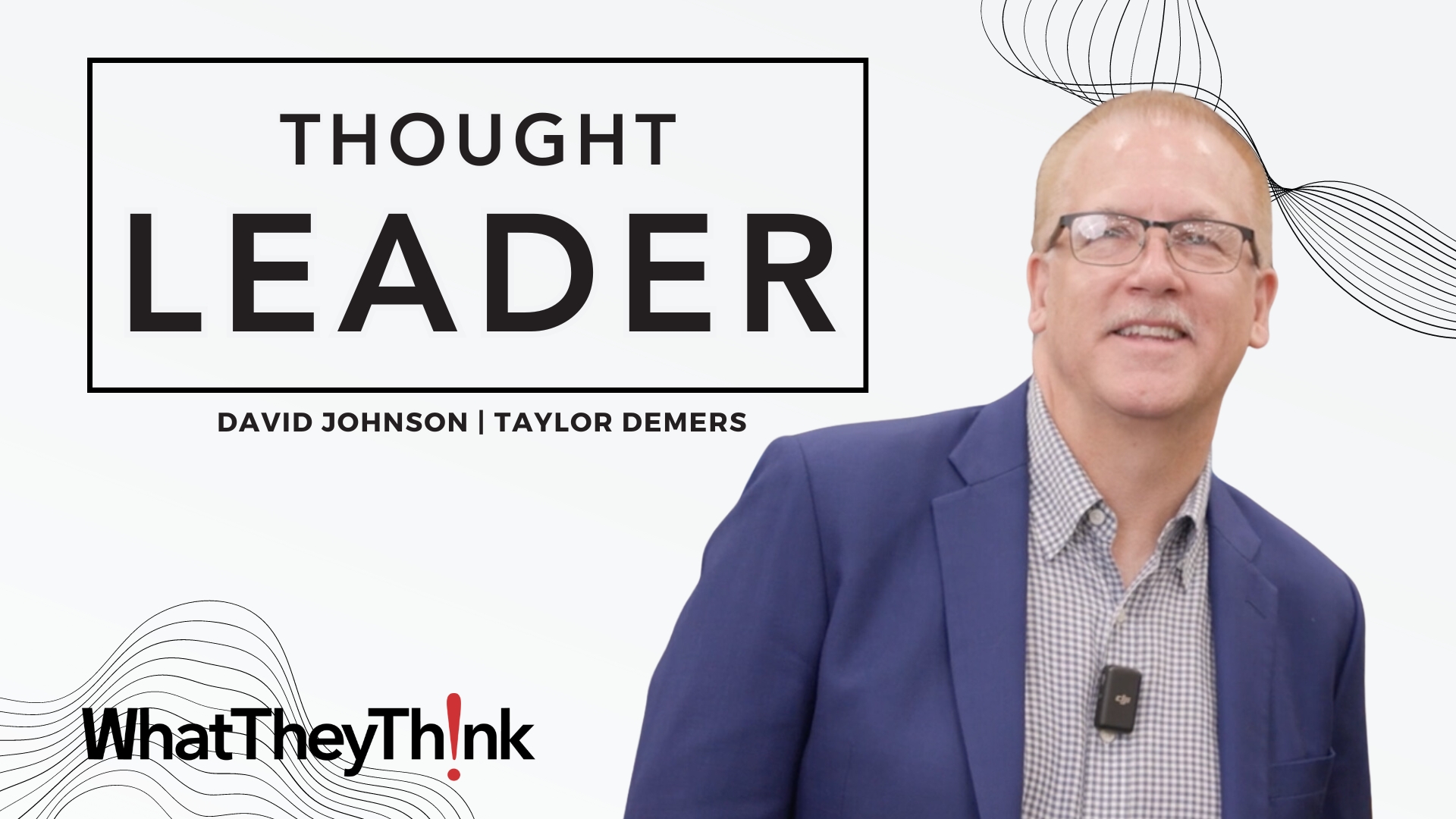
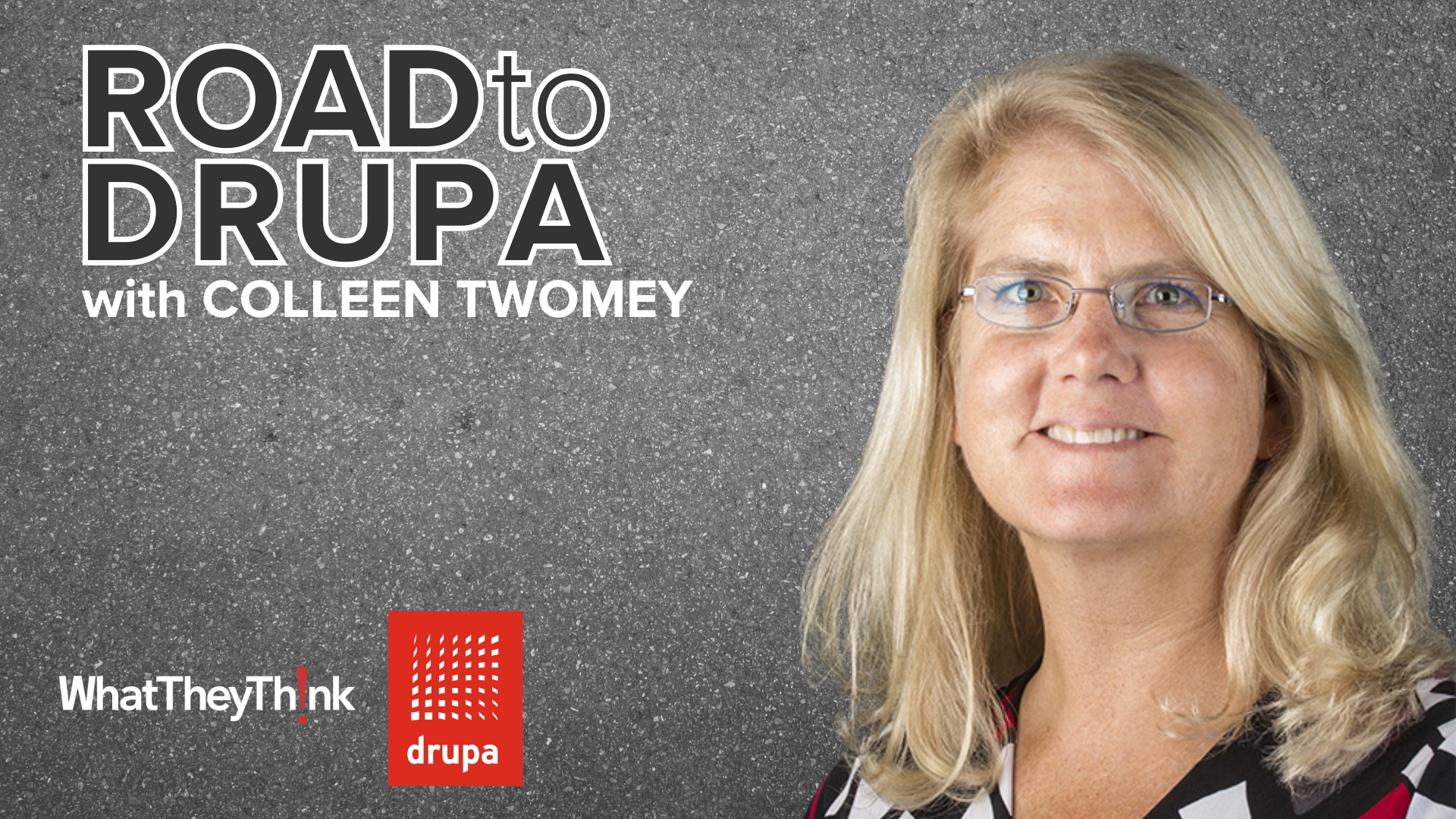
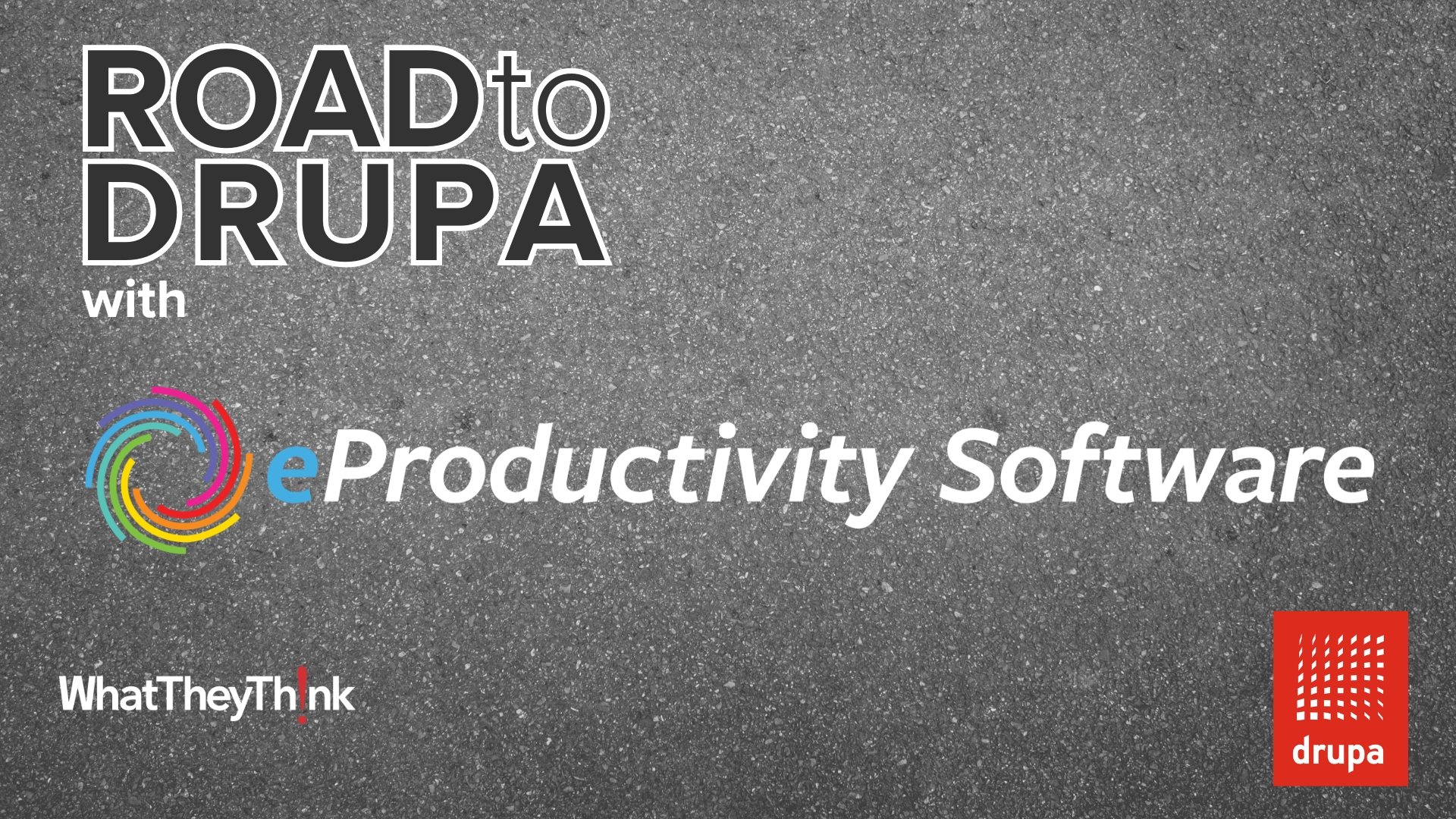
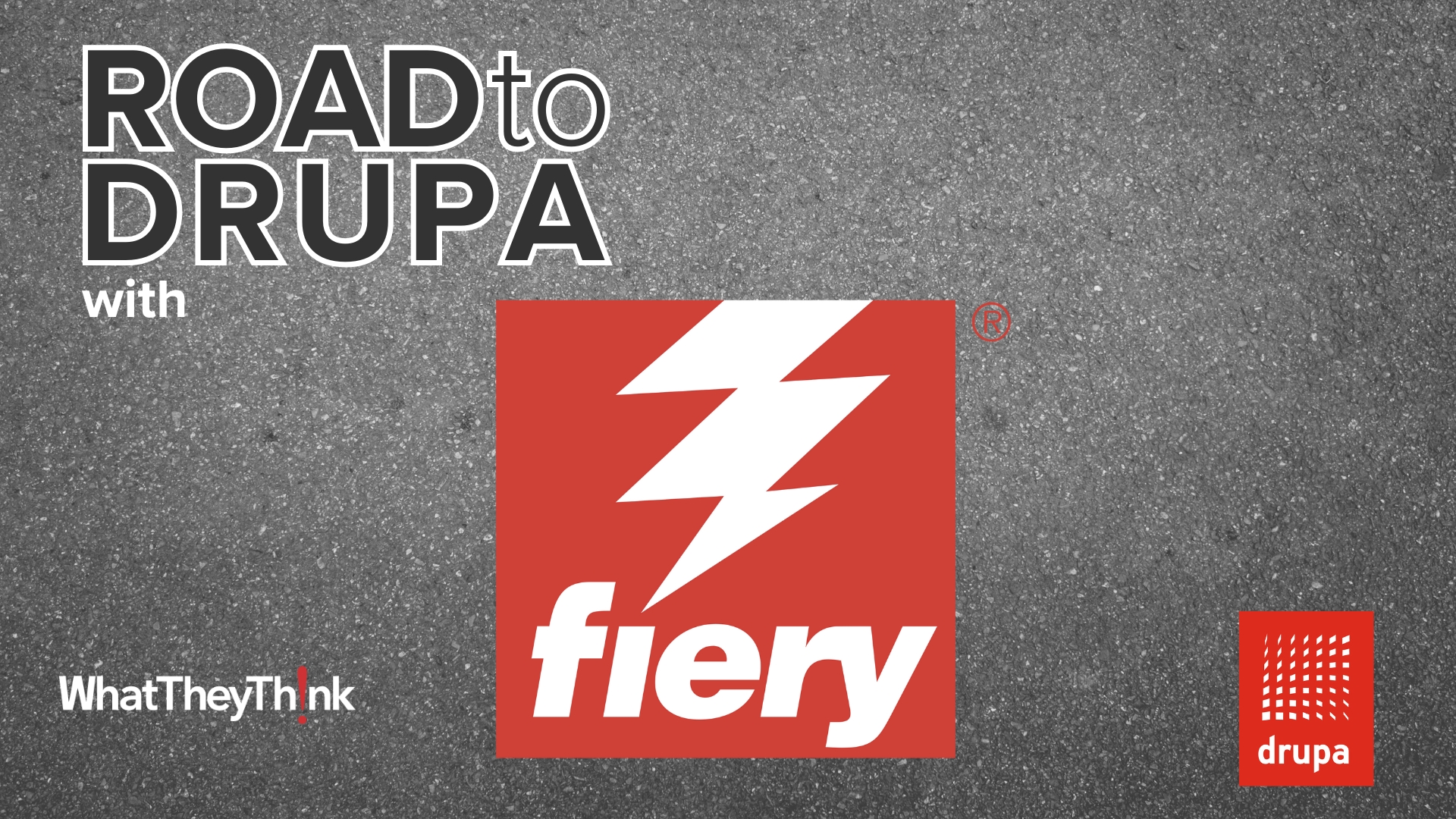


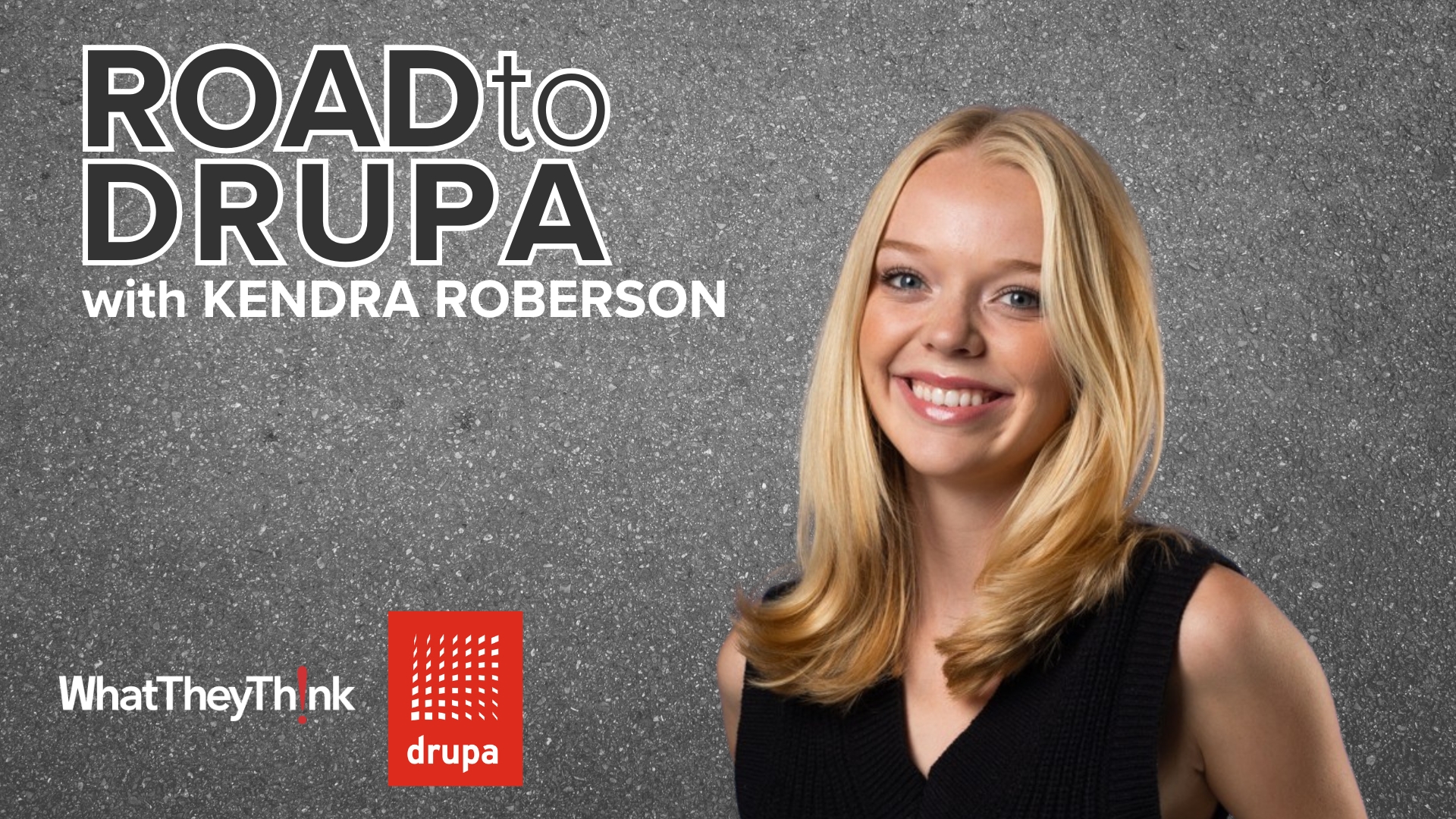


Discussion
By Thomas D. Greer on Jul 31, 2007
While I don't disagree with much of what you say, I have to point out that the analogies are a bit off. Jiffy Lube doesn't view Ford as a "vendor" to the quick lube industry, selling cars to all quick lube shops but recommending only one to the final consumer. Same with the washing machine / detergent example. Those analogies just don't work. Even in such cases, though, you'd expect equal opportunity from all detergent supplies to work out a favorable endorsement, with the best one winning.
By Pat Berger on Jul 31, 2007
The public free users were not given a choice. It was forced upon them without warning or method of removal. There are few industries with one vendor in control or influencing as much of an industry since JOHN D ROCKEFELLER.
The printers have a choice, most of the millions who downloaded the reader aren't even aware of others choices.
By Brian Regan on Jul 31, 2007
I find Kinko's to offer sub standard wages and to offer marginal quality, sort of like the Walmart of print. It is also fair for the industry to say, hey, thats cool, but I hope they drive revenue to you since we choice to now abandon your product or at the very least look more closely at other options.
Anytime a company takes such a decisive stand it just lends itself to opportunity for a new competitor to take over where they left off.
I hope this new process is a benefit to the consumer and provides a push to all in the print industry to overcome this new challenge and create a superior product, that my friend is Capitalism.
Opportunity is the result of this, not protectionism.
By Dr Joe Webb on Aug 01, 2007
The analogy to John D. Rockefeller is misunderstood. He was accused of keeping prices too low for competitors to enter the market, and made more money after the company was forced to break up. The idea of a vendor "controlling" a market is quite extreme. Scitex "controlled" a market. So did Harris when it came to web presses. It's not like there are no alternatives. There are plenty, and the biggest alternative is to not print at all and publish totally electronically. There is no such thing as "controlling" a market except by government fiat.
By Michael Josefowic z on Aug 01, 2007
Sooner or later someone is going to scale a "distribute and print" model that works. Maybe this will be the push that energizes some networks of printers to overcome what keeps them apart and gets them together. As even Microsoft found out, the value created is the network. Everything else is a commodity.
By Ahmed El-Sherif on Aug 01, 2007
Its true that businesses do forge deals to get better market share and increase sales, and the bigger the businesses the better the deals...however like Thomas mentioned these deals are almost always a matter of choice to the consumer.
At the same time no printer in the world would even try to disagree to the fact that given the chance they too would have tried to forge a similar deal with Adobe (which they can still do by offering their customers a different version of Adobe with their own “sent to print” button!).
In short, as much as I hate the idea of Adobe and Kinko’s joining forces, the fact of the matter is, printers should always bring added value to their customers...there are hundreds of services and products Kinko’s cannot deliver on nor even compete with...like Brian mentioned Kinko’s is the Wal-Mart of print (even worse internationally).
I believe that the printers should overlook Adobes deal, not necessarily forgive Adobe but turn this anger/shock into a more productive medium and focus on their products/services bringing added value to their customers.
By Todd Mason on Aug 01, 2007
As technology allows printing to be accomplished quickly and easily we are constantly reiventing ourselves in order to compete and maintain profits. As the speeds of our throughput increase, so do our investments, like personalized websites for our customers, digital presses etc. If we don't invest in new technologies, we can't compete. When FeX took over Kinos it made a huge investment thinking it could revolutionize the quick print business and make money. Fortunately for them they had the capital of their shipping business to back up the venture. Thinking big is what FedX does, and they have the collateral to carry it out. It will be intersting to watch the new few years to see how profitable the deal becomes for the stockholders. We all know how big business works and if they don't turn profits which are much better than the average printer, the Knkos deal will be history.
Todd Mason
By Woody Ryder on Aug 01, 2007
A tad over a century after Teddy Roosevelt used his 'bully pulpit' to opine about the inherent dangers of over-concentration of market forces in monopolies, today we see deals such as the Adobe/FedEx-Kinkos exclusive arrangement, in a macro-economy where banks have consolidated to the point of minimal consumer choice; the credit card companies largely wrote the revamped US Bankruptcy Act; and the politicians are still overly beholden to the cabal of trial lawyers/pharmaceutical companies/health care insurance companies to the detriment of affordable health care delivery in the United States.
Nobody should be surprised that the Adobe/FedEx executives made the "damn the consumer" styled decision which they made. It's how the 'new economy' works in the era of George IInd.
By Chris Cochran on Aug 01, 2007
Yes Adobe has the right to pusue this avenue - I cdertainly don't question that, but they must then realize that it is a slap in the face to my company to have then blatantly make opportunities available to a particular vendor vs. my company. Yes I understand that Fedex/Kinkos is larger fish for sure. But Quark made mistakes in how it treated it's customers and the results are evident in the market share loss. Adobe has some decisions to make and their choices will determine how much market share they loose. As good as their products are, there is always alternatives.
By Dan lipford on Aug 01, 2007
Gene -
If you're rignt, apparently Adobe needs to "grow up," too: Bruce Chizen and others at Adobe have already admitted that they made a mistake in entering into the contract with Kinko's, and Adobe has already made the verbal commitment not to renew the contract.
Unfortunately for Adobe, it's trapped in a contract into which it has admitted that it would never have entered if it had been "grown up" enough (as a business entity) to think about what the effect on their business would be if they embedded links in their software that advertised a single of its customers at the expense of all of its other customers. Their lack of foresight in this matter is so staggering that any "lecturing" from Adobe that its customers "grow up" would deserve - and probably engender - howls of laughter.
Further, if you've really been paying attention, it's far from only Mom & Pop printers that have complained: So have large printing firms, the corporate representatives of every major printing franchise, organizations representing in-plant print shops in industry and education, as well as independent designers. Do all of them also need to "grow up?"
We have grown up: Grownups complain when vendors they've supported enter into contracts (for money - NOT for the altruistic purpose of "better serving their customers") that are mistakes of the magnitude of the one that Adobe's admitted making, and businesses that have "grown up" respond to those complaints or they eventually lose their leadership positions in their respective markets. AOL and Dell computer are two examples. Both were leaders in their industries, with no real "close seconds," and both began their slides toward being just "another player" when they lost the focus of making sure all of their customers were delighted (i.e., nearly certain repeat buyers). In Adobe's case, they delighted one customer - Kinko's - at the cost of convincing all of their other customers that betrayal was in Adobe's code of conduct.
My firm is an Adobe Service Provider. We have all of their latest software, and I'm telling you that you're flat wrong about there not being any alternatives - and flat wrong about the necessity of continuing to buy Adobe's products. We will actively support other alternatives, and we will neither buy any Adobe products nor recommend their use to any of our customers until the Kinko's links are removed. Further, we will easily serve our clients needs with current versions of Adobe's software and the latest versions of all competing software until that's accomplished.
By Wayne Shipman on Aug 01, 2007
Exclusivity has its double-edged sword. When Shakespeare wrote about "hoist on his own petar" it was for the same reasons: FedEx/Kinko's will have to deliver. Their vendors who supply the equipment will be happy, if overwhelmed, should the 'button' work. Their customers may be the least sophisticated, graduating from inkjet at their desk, and will have to be educated by FE/K in regards to color, image quality, and printing in general.
Other web-to-print vendors have used ways to control how customers access their services. Many are now in litigation about the mechanisms for access! All trying to eliminate the competition.
I agree with Gene. Don't complain because someone thought up a great idea and acted upon it.
By Craig Schleunes on Aug 01, 2007
Excellent commentary, Gene. You put in words what I have been thinking ever since this story first broke.
I had to shake my head at those in the print industry calling for a boycott of Adobe software, or suggesting to tell their customers to switch to Quark. This just illustrates the sad state of the industry. Printing companies still have this mistaken belief they are in control of their customers’ workflow. Maybe this was true 30 , years ago but is no longer true today.
The true visionaries of print – and they are out there – have figured out how to partner with their clients, how to provide excellent service that makes it easy to work with the printer. The ability to add a “Send to Acme Printing” button to Acrobat or through other software has been available for years. Those same visionaries know this and have been doing it for years.
By the way, did anyone notice the Yahoo search button introduced in Acrobat 6? Did you here Google complaining about it? Did Google standup and say, “We won’t catalog PDF files”? No, Google just set out to build better products for its customers. And look what’s happened to Yahoo vs. Google over the past 5 years.
All this just makes me feel good about my decision to leave the print vendor side of the industry years ago.
By Jonathan Salem Baskin on Aug 01, 2007
I think I agree with you: better functionality equals better experience, and experience drives brand success. I'm thrilled that Adobe tried to make its product better instead of wasting a portion of my conciousness with irrelevant, useless brand advertising (and even if the move irked a few people).
I'm a marketer, but it seems that the problem can be fixed by making the button customizable for any printer -- I doubt few of the complaining entities would ever bother to make work that much easier for their clients, but if they did, good for them! -- and then for Adobe to go back to the planning table and look at what other innovations are on tap that might influence the experience of its brand.
This entire shebang was a communications error more than one of strategy: it was planned poorly, and announced worse. Where were the marketers? I've written a bit about it from a branding perspective on my blog, Dim Bulb, if you'd like to check it out. http://dimbulb.typepad.com
By Mark DeVries on Aug 01, 2007
I agree with Thomas D. Greer that the analogies are off-base. With the coupons, free samples, etc., once you use them or throw them away, the reminder is gone. You take the discount hotel, services, etc., then you go back to life as usual. With the magic button, it's always there, in front of you.
And, while Pat Berger decries that "most of the millions who downloaded the reader aren’t even aware of others choices", that seems to play right into the author's point -- printers need to do a better job of making people *aware* of their choices.
If only the magic button timed out and disappeared after a few exposures (with the user option to retain it), then this would seem to be a good thing. Maybe.
By Carl Gerhardt, CEO Allegra Network on Aug 01, 2007
Good point about being "grown up" but wrong about getting off of Adobe's back. They made mistake by not being close enough to a key customer segment to understand the consequences. By breaching this relationship printers of all kinds will no longer place the same degree of trust in Adobe as they did before...and...they need to hear that loud and clear. If they choose to end the deal with Kinkos they may be able to repair some of that damage. If not then they have weakened their place in this market and eventually will pay the price.....with this market segment.
As customers we have the right and responsibility to react and voice honest concerns.....even threats.
Either way, let the free market determine the outcome....with a level playing field.
By A Zale on Aug 01, 2007
Clearly, you can't be serious with all this fuss. It is true that the Adobe & FedEx Kinko's commiserated and consummated their relationship by integrating this 'send' button. And, yes, FedEx Kinko's does have the brand equity and the ubiquitous footprint necessary to establish a print and distribute model. On the surface it may seem like a formidable and an evil alliance from where we sit. But let me tell you, my comrades in arms, that we are making a big stink for nothing.
In fact, FedEx Kinko's is probably hoping the 'controversy' will continue. They couldn't have planned on such an overwhelming reaction in the community. You can't model PR propaganda like this in a marketing focus group. Priceless!
Think back to when Microsoft embedded the "Print to Kinko's" drivers within their Office suite a few years back. Don't remember this monumental day? Not surprising. It really didn't do much for either party other than provide for an obligatory photo-op with Gary Kusin and Bill Gates.
I suspect that this recent ordeal would've been much less conspicuous if we paid less attention and let nature run its course. Honestly, how many of your customers do you think would defect because this ‘button’ makes printing easy? How many even know about it? How to use it? I can almost guarantee there aren’t troops of FedEx Kinko’s foot soldiers out there creating more buzz about this than we are right now.
My diatribe may have taken a twist if indeed FEK was not the, as Brian and Ahmed note, the “Walmart of printing” it is today. Lack luster service levels and inconsistency plague the monolith on a daily basis. The casual customer will continue to trip over to their neighborhood Kinko’s but commercial customers and prospects demand more. They represent the true potential and should be the focus or our efforts.
In the spirit of Gene's comments - let's turn the tables and create opportunity out of discourse. Lemonade anyone?
By Tim Lloyd on Aug 01, 2007
It seems to me that printers are some of the most paranoid people on the planet. This Adobe's-FedEx Kinko's deal is a good example. And one reason it might be causing some shirt collars to tighten is the sheer scale of it all.
If this deal was done on a regional basis, the nay-sayers' emails would be in the single digits! But folks, this is the reality of today's economies and profits. It's called scale. Nothing more, nothing less. And yes, scale is scary sometimes, but not lethal!
You want scale? How about Sam's Club, Costco's, Target, Walmart... and I'd bet that most of us have shopped at one of these stores recently. They all use scale and cross-promotion to their advantage, and we take full advantage of it.
So let's all take a collective deep breath, and get out and make business happen. Leave the safety of your offices and boardrooms, get out in front of your clients, promote yourselves, and finetune your 10 second "elevator" pitch. Separate yourselves from the pack. And please, think big. Even it's big in your own back yard!
By Colin Dodgson on Aug 01, 2007
A couple of thoughts: The thing that makes "Mom & Pop" think they count as an equal customer to FXK is not a copy of Photoshop once in a while, but the Adobe Solutions Network, through which participating small printing businesses have actively advocated use of Adobe products in the graphic arts field for many years and helped establish the pdf workflow as an important standard. That is why the Adobe-FXK arrangement seems a betrayal. "Bunch of stoner hippies" may be closer to the mark than "better service at a better price". If you are able to compare service and price with a local small printing business, most times you will find Kinko's service does not compare favorably, and their prices are higher. The thing that made them successful was accessibilty and visibility to customers like Gene who were abundant and not very discriminating. It is relevant that the Kinko's operation is not performing well financially.
By Todd Truesdale on Aug 01, 2007
I'm sorry. But, doesn't this website have an editor? This article is specious, if not foolish. Your analogies are ridiculous. Really, why are you wasting our time with this? Can you get someone to write a real analysis of the situation instead of a contrarian view simply meant to catch the reader's eye?
By Bill Wylde on Aug 01, 2007
This is not about competing with Kinko's, I can beat them handily when I have the opportunity. This is about them circumventing that process.
Millions of potential clients will never have the chance to choose my company because their print decision will have been made upstream at the document's creation. This is restraint of trade, encouraged and arranged by a company that owes its existance to the very companies it has cut out of the process.
By Patrick Berger on Aug 01, 2007
Adobe is postscript, postscript is Adobe. Until another universial printer description language becomes available and accepted and used world wide Adobe is in control.
By Stan Anglen on Aug 01, 2007
Thank you Gene! Adobe owns the printing industry, and they didn't even pay for it. We printers actually paid Adobe to own us. Sure they made the investment, took the risk, did the work, oops that sounds like capitalism.... Isn't that our excuse when the employees want a raise.
By Russ Peters on Aug 01, 2007
While I agree that actions such as boycotting Adobe may be petty and short sighted, complaining loudly is the American Way. Companies need to hear from their customers and know how they feel about business decisions. Complaining to Adobe about the FedEx/Kinkos button isn't much different than complaining in the editorial pages about your Senator. Individuals are voicing their opinions, just as Gene Gable is voicing his. As a business owner, I find it insulting that Adobe saw fit to partner exclusively with FedEx/Kinkos when they certainly could have created a system where every printer could 'private brand' and distribute a modified copy of Reader with a link to themselves. In addition, the new Reader with this link is being distributed by Adobe rather than Kinkos, so Adobe is effectively telling all their customers to use Kinkos and to NOT use the other printers, many of whom are members of the Adobe Solutions Network. Why hasn't Adobe approached the Sir Speedy network, or the Minuteman network, or the Insty Prints network... I'll tell you why - FedEx/Kinkos has deeper pockets. It's not about servicing customers, it's about making quick cash. It's about selling out a huge chunk of your customer base.
By George Croft on Aug 01, 2007
Adobe has profoundly broken faith with all of its print partners... save one. Technology marches on, but there is still right and wrong. Apparently, the author wouldn't know anything about those things.
It would be interesting to know if the author ever owned abusiness.
By Kevin on Aug 01, 2007
Very interesting commentary from all - thanks you.
I have a question: how can you add your "send to acme printing" to acrobat? thanks for any help here...
By Mike on Aug 01, 2007
@http://printceoblog.com/2007/07/adobe-fedex-deal-good-for-industry#comment-1629" rel="nofollow">Kevin
Acrobat’s developer resources are http://www.adobe.com/devnet/acrobat/" rel="nofollow">right here. You'll also need to be a member of the http://www.adobe.com/devnet/reader/ikla.html" rel="nofollow">Reader Integration Key License Program.
By George Croft on Aug 01, 2007
Sorry, it's just "Send to Kinko's" or nothing (if you choose to go through the disabling process).
Of course, if you disable the Kinko button, it will be for YOUR copy only. Adobe has already said it expects to distribute 500,000,000 copies of the new Kinko's Reader.
For those of you who think the involuntary Kinko button is a good deal, what are your thoughts on this? All the major car makers make deals to place advertisements for Kinko's on any new car you buy. Your phone company sells Kinko's "on hold" sales messages on your phone. Post Office puts advertising stickers for your competitor on all your outgoing mail.
Are you beginning to "get it"?
By Joseph Fallon on Aug 01, 2007
I believe all of the previous comments point out that Adobe did not do its homework prior to making the deal with FXK. If they had, none of this discussion would be happening.Adobe made a misstep in marketing and are now dealing with the results. This was a breach in trust between Adobe and their client base. How much can we trust them to be our " partner in print " after this action? Over the years we have given them a lot of information about our businesses under the guise of them wanting to "help" us be more productive. How many of you are going to be as forth coming in the future? As a final observation, if we had made a deal with one of our print clients to the disadvantage of the rest of our clients, "it's just business, nothing personal" comes to mind, however I don't think our clients would trust us quite the same way in the future.
By dick ranes on Aug 01, 2007
I can compete with FXK - at least on a local level, and I can understand how this tie-in may look appealing to the empty suits at Adobe. Wonder what the reaction would have been on the hardware side if there was a splash screen proclaiming "Adobe works best with HP printers" or "Adobe, optimized for Mac". Meanwhile, I'm dusting off Quark, Corel and PDF converter to get back up to speed. CS3? who needs it?
By Eric Vessels on Aug 01, 2007
Please note: As Adam points out in the opening paragraph, this commentary is from Gene Gable and not written by Adam. Some have referred commentary to Adam as the author, which is incorrect. I just wanted to make sure that was clear.
By Craig Schleunes on Aug 01, 2007
For Kevin,
One possible solution that's been around a number of years:
http://www.windjack.com/products/acrobuttons.html
By Kevin on Aug 01, 2007
Thanks for the responses - very much appreciated...
By Dave Hultin on Aug 01, 2007
Today the power of this button hit home in a big way. I was visiting my lawyer making changes to my will, and he going on a long off-topic (but interesting) conversation about all the changes he's experienced in his 26 years as an attorney. He was talking about how the "legal sized document" is a thing of the past. Someone did a study and found out that the legal industry could save a bazillion dollars in storage fees by switching to 8.5 x 11 ... so everyone switched.
Then he mentioned that he used to get all kinds of fancy paper to print the wills on ... but no longer because the court prefers (and likely will mandate) that documents be provided to them on good ol' 20# bond.
Then the part that caught my attention (highly paraphrased): "In fact, it's pretty common for legal documents to get scanned to PDF." So when the lawyers open their PDFs and need a whole bunch of copies ... and that super-bright FedEx Kinkos button is just sitting right there ... it's all of a sudden going to be a lot more tempting to push that one button. Talk about a sweet deal for Kinkos. Adobe has certainly changed the tilt of the playing field.
By Stephen Christopher on Aug 01, 2007
Let's see...Printers everywhere will begin to "encourage" their customers to use alternate software. Is that similar to when they were all in bed with Quark and turned their nose up at my Freehand files? I fail to see how a design professional needing offset printing would be tempted by the "Print at Kinko's" button. Will these same printers convince thousands of creatives to abandon the tools they are comfortable with in order to work with software (in most if not all cases, inferior software) that better supports the print shops financial sustainability?
As a graphic designer I care only about producing an end product that exceeds my clients expectations. Adobe produces the tools I use on a daily basis. I assure you, I can not be induced to change based on Adobe's alliance with FedEx Kinko's. I suspect I am not alone.
By John Polvino on Aug 15, 2007
I'm curious? Does anyone writing here, including the original author spend anytime sending countless emails decrying immigration, support of fighting a nebulous "war on terroism", etc..
The reason I ask, is I believe those privileges extend to an industry like ours that has every right to complain about Adobe's actions.
I'm going to complain and complain loudly that Adobe's decison was thoughtless, insulting , and completely reckless. I won't however subscribe to the rantings about printers being childish or any other pejoratives the author put forth.
Make a payroll, pay the debt service on the equipment and run a company before you or anyone else tells me how I should act in the face of these decisions. What temerity to suggest that our industry should simply bend down to Adobe's knee and thank them like serfs for the crumbs they thrown. I think the author needs to reflect a bit on maturity here instead of folks like me with millions of dollars of debt at risk trying to create wealth for ourselves and our employees.
By Eric Vessels on Aug 15, 2007
John, You most certainly have this right here and it is one of the reasons we created the blog in the first place and allow comments. We have not disallowed any comment other than one that was incredibly offensive and it was dealt with properly between myself and the author. Associations and the outcry from the industry is what forced Adobe to rethink and ultimately remove the Kinko's button. I think that speaks volumes (if we are drawing political parallels) to the democratic process of hearing the voice of the people. You, like Gene Gable (the original author of the piece), both have the right to voice opinion and I'm particularly glad that you chose to do so!
Discussion
Join the discussion Sign In or Become a Member, doing so is simple and free